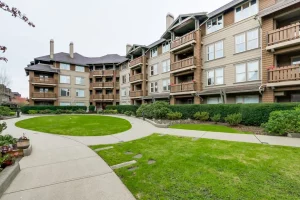Effective Community Scheme Management through Organisation
In situations where people must cohabit and utilise the same shared space, utilities, facilities or resources, proper management is necessary to ensure that such use is equitable, fair and in line with the agreed standards and shared rules, both to keep the peace between neighbours and to ensure that these spaces are adequately maintained to meet their purpose.
Putting the community first in community sharing
This is where community scheme management comes in. However, managing a Community scheme involves a significant amount of coordination, cooperation and work. Here, the Board of Trustees or Directors may find it helpful to establish sub-committees with mandates to focus on specific areas.
What is a community scheme?
The Community Scheme Ombud Service Act, 9 of 2011 (“the CSOS Act”), offers a definition of “community scheme” or “scheme” as any plan or agreement where there exists a collective utilisation and joint accountability for segments of land and buildings, including, but not restricted to:
- A sectional titles development scheme,
- A share block company,
- A home or property owner’s association, in any form that is established for property management,
- A housing scheme catering to retired individuals, and
- A housing co-operative as outlined in the South African Co-operatives Act, 14 of 2005.
These five categories of community schemes serve as illustrations without limiting the extensive range of possible community scheme variations. Any plan or agreement facilitating shared use and joint responsibility for land and buildings, such as a body corporate, is regarded as a community scheme.
Organising to maintain focus and achieve collective objectives.
To assist with clarity in this regard, in my experience it is helpful to list these potential sub-committees and provide a brief focus description for each. These can be leveraged depending on the size of the community scheme, and the level of participation that community members are willing to commit to.
1. Budget and Finance Sub-Committee
Ensures the financial health of the scheme. They are responsible for reviewing expenses, helping formulate budgets, monitoring financial planning, and providing fiscal guidance to the Legal, Governance and Compliance Sub-Committee, particularly when it comes to outstanding levies, body corporate debt collection and financing solutions.
2. Maintenance and Facilities Sub-Committee
Focuses on maintaining and upgrading the community’s infrastructure and amenities such as common areas, swimming pools, car parks, and security systems.
3. Rules for Sub-Committee
Ensures that the rules are current and relevant, and that residents buy in to and follow the scheme’s rules. They are also responsible for enforcing the rules through the application of penalties, where necessary and for the handling of disputes about rule violations.
4. Insurance and Risk Sub-Committee
Responsible for ensuring the scheme’s insurance coverage is adequate, up-to-date, compliant with the Act and Rules and comprehensive enough to protect the scheme’s interests. They are also responsible for mitigating and managing all other risks, such as POPI, OHSA, as well as labour and tax laws, and so forth.
5. Legal, Governance and Compliance Sub-Committee
Responsible for collections of arrear levies and ensuring that trustees and managing agents operate within the law and that the scheme maintains compliance with all relevant legal requirements.
6. Communications Sub-Committee
Responsible for internal and external communications, including newsletters, announcements to residents, social media and website management.
7. Reserve Fund Sub-Committee
In charge of managing the reserve fund required by the community scheme to cover ongoing future maintenance and provide for emergency repair expenses.
8. Social and Community Sub-Committee
Organises Trustees Training, social events, promotes inclusivity, and handles community engagement and well-being issues.
9. Security Sub-Committee
Assesses and monitors safety risks, including coordinating with security service providers, implementing and upgrading security measures. Responsible for the development and periodic review of a security policy for the scheme, while reviewing and reporting on incidents.
10. Audit Sub-Committee
Responsible for overseeing the yearly audit, reviewing and approving monthly and annual financial statements before release to owners. Responsible for reviewing internal controls and improving them, while monitoring financial risks and setting up a secure mechanism for whistleblowing.
Putting purpose behind community scheme management
The creation of sub-committees within community scheme management bodies is an effective mechanism for enhancing openness and transparency. It is a critical tactic in getting more owners involved, which is beneficial to the overall health and smooth operation of any community scheme.
Written by Willie Roos
For useful resources that will assist in trustee training and successful scheme management skills, please take a look at our Tools of the Trade. We invite you to watch our FREE webinars and access free learning materials relevant to community housing schemes, bodies corporate, and homeowner associations.
Or contact us directly to enquire about our sectional title training courses for managing agents and trustees.













